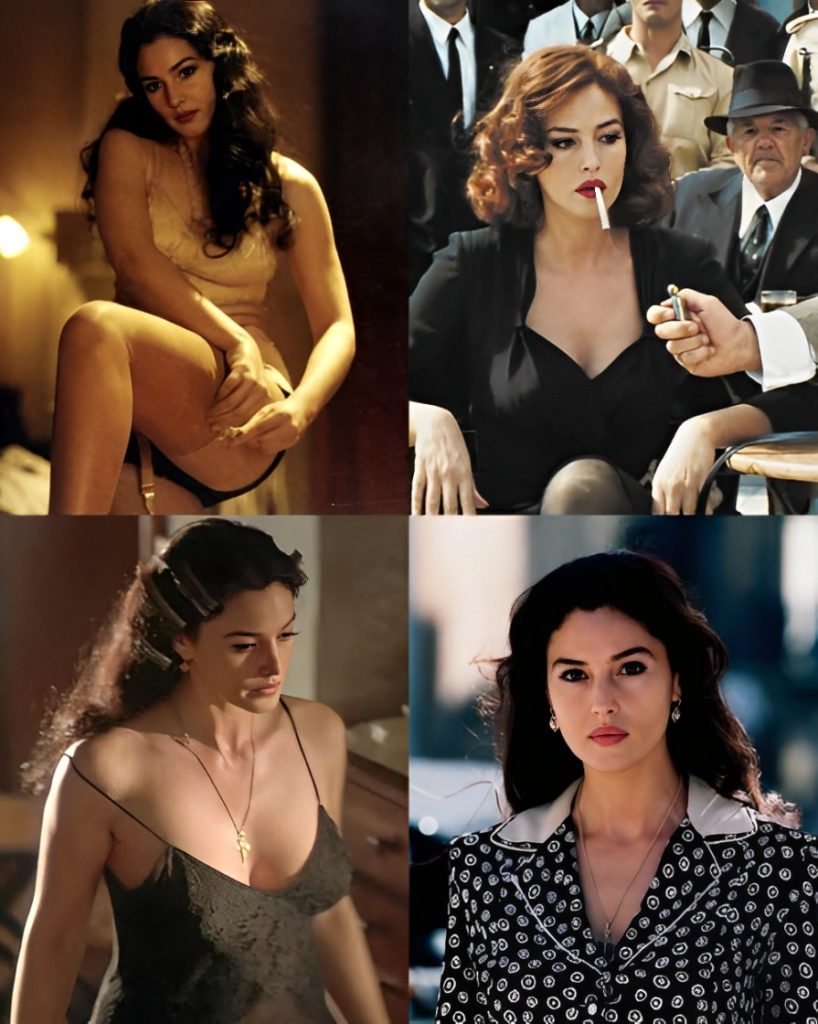Malèna (2000): A Poignant Portrait of Beauty, Desire, and War
Giuseppe Tornatore’s Malèna (2000) is a hauntingly beautiful coming-of-age drama set against the backdrop of World War II in a small Sicilian town. With a screenplay written by Tornatore and a stirring score composed by the legendary Ennio Morricone, Malèna is a visual and emotional journey into adolescence, longing, and the devastating power of societal judgment.

Plot Summary
Malèna centers on 13-year-old Renato Amoroso (Giuseppe Sulfaro), who becomes infatuated with the town’s most enigmatic and beautiful woman, Malèna Scordia (Monica Bellucci). Recently arrived in the town after her husband is sent off to fight in the war, Malèna becomes the object of desire, gossip, and envy. Her beauty captivates the men and inflames the resentment of the women, making her a target of relentless scrutiny and cruelty.
As Renato secretly observes Malèna from afar, his innocent fascination grows into an intense obsession. Through his eyes, the audience witnesses Malèna’s descent from dignified isolation to social outcast as she is punished for her beauty and independence in a deeply conservative and patriarchal society. The film explores how the town’s collective morality crumbles under the strain of war and repression, and how Malèna is made to bear the brunt of its hypocrisy.
Themes and Analysis
At its core, Malèna is not just a story of youthful obsession; it is a commentary on the objectification of women, societal cruelty, and the loss of innocence. Monica Bellucci’s performance as Malèna is remarkable not for its verbosity—her character speaks very little—but for the emotional depth she conveys through silence. Bellucci embodies the pain of a woman stripped of dignity, reduced to a symbol, and ultimately discarded.
Renato’s voyeurism serves as a lens for the audience, mirroring the gaze that defines Malèna’s existence. However, the film complicates this gaze: while Renato romanticizes her, he also matures into an understanding of her suffering. Tornatore doesn’t shy away from portraying Renato’s fantasies, but he juxtaposes them with the harsh reality Malèna endures, forcing viewers to confront the consequences of idealization and dehumanization.
The setting—1940s Sicily—adds a layer of historical and cultural texture. The film captures the claustrophobic atmosphere of a town gripped by fascist ideology, where conformity is demanded, and deviation is punished. War amplifies the town’s latent misogyny, making Malèna’s existence untenable.
Cinematic Style
Tornatore, best known for Cinema Paradiso, brings his characteristic blend of nostalgia and melancholy to Malèna. The cinematography is lush, painting Sicily in warm, golden tones that contrast with the coldness of its people. Ennio Morricone’s score is both lyrical and heartbreaking, reinforcing the emotional gravity of the story and Malèna’s solitude.
The film’s aesthetic beauty is both a strength and a subtle critique—it underscores the central irony that the very thing that makes Malèna “visible” is what ultimately destroys her.
Reception and Legacy
Upon release, Malèna received mixed reviews, with some critics praising its visual storytelling and others critiquing it for perceived voyeurism or melodrama. Yet over time, it has gained a more nuanced appreciation. Monica Bellucci’s performance is now widely regarded as one of her finest, and the film is often cited for its bold exploration of desire, judgment, and resilience.
Malèna is a deeply affecting film that lingers in the mind long after the credits roll. It is a tale of a boy’s awakening and a woman’s undoing—a juxtaposition that is both poignant and unsettling. Tornatore invites the viewer not just to witness, but to reflect on the unseen stories of those who live under the gaze of others, judged not for who they are, but for what they appear to be.


